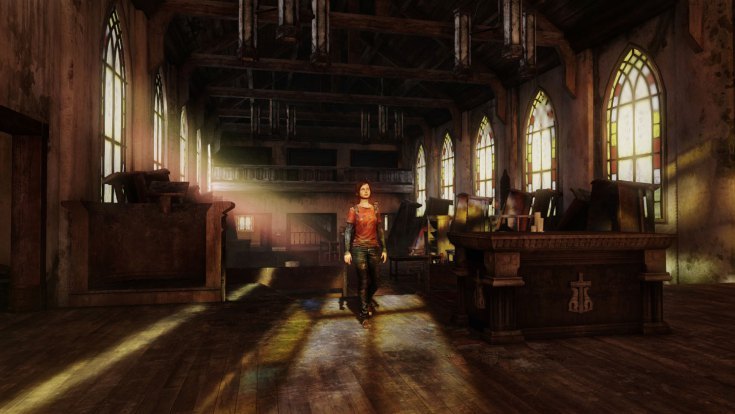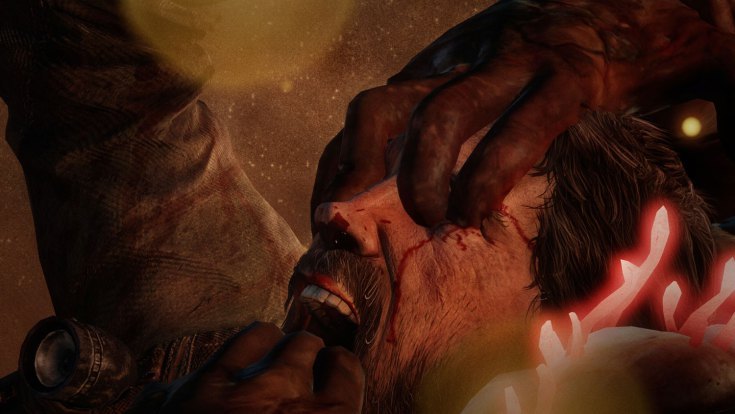The Last of Us Remastered is a post-apocalyptic video game released earlier this year on PlayStation 4 with an in-game Photo Mode, which freezes the game and lets players shoot, edit and share photographs of their achievements.
TIME assigned conflict photographer Ashley Gilbertson to use the Photo Mode to document the games protagonists as they fight to survive in a zombie-infested world. Gilbertson writes about his experience.
Ive spent a few days inside the body of an angry Hugh Jackman-lookalike.
TIME asked me to work as a photographer within the video game called The Last of Us Remastered, a hyper violent game in which a player must kill people that are infected with some type of brain and flesh condition. The game, which is very carefully rendered to look as real as possible, gives the player access to a wide variety of weapons, but it also provides players with a camera to shoot their own action. I loved the concept it brought to mind the ideas of photojournalism produced without a physical camera, best embodied in Mishka Henners brilliant series, No Mans Land, a project that uses Google Street View to document Europes prostitution issues.
My approach with The Last of Us Remastered was to enter each situation, or level, and work the scene until I was confident Id gotten the best photograph I could before moving on. Its the same way I work in real life. Yet, I found it was more difficult to do in a virtual reality because I was expected to fight my way through these levels to get to the next situations. That involved chopping off peoples heads, shooting them point blank in the face or throwing bombs near them. If I failed, Id have my neck bitten, with blood exploding from my jugular in some pseudo-sexual zombie move, forcing me to restart the level.
I initially played the game at home. But after a short time playing it, I noticed I was having very strong reactions in regards to my role as the protagonist: I hated it. When I covered real war, I did so with a camera, not a gun. At home, Id play for 30 minutes before noticing I had knots in my stomach, that my vision blurred, and then eventually, that I had simply crashed out. I felt like this could well be my last assignment for TIME.
Call me soft, but Im pretty sure it was my brain being overwhelmed and shutting my body down. It sounds extreme perhaps, but Im wired that way.
An additional challenge was that I could make photographs that seemed almost perfect. It wasnt hard to make images that recalled posters for a war film, or that might be used in an advertising campaign for the game itself. It was too clean. The last thing I wanted to do was to advertise the game, so I tried to mess with the photos a little. Put unimportant information in the foreground. Tilt the camera. Pull back too wide. I needed to make the shots imperfect because, I believe, imperfections make photography human. In advertising things look perfect. In journalism, theres always something off. What some people see as visual weaknesses in our work, I see as part of our tableau.
http://lightbox.time.com/2014/09/15/war-photographer-video-game/#end


much more at the link...
I think this is a strange article.. the photographer didn´t really understand the game..
"I shot through a dirty window at one point trying to emulate the refugee-in-bus-window-at-border-crossing image, but the subject, my virtual daughter, didnt have the required expression of distress."
If I failed, Id have my neck bitten, with blood exploding from my jugular in some pseudo-sexual zombie move, forcing me to restart the level
but it´s fun to read and see how a seasoned war photographer goes through a ame like this..


